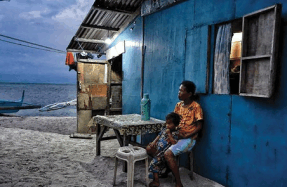Cracks Beneath the Surface


“Our society is based on the legacy of renaissance,” Pinarayi Vijayan said during his first term as the chief minister of Kerala. He was addressing a public meeting in October 2018, at which he spoke of the Left Democratic Front government’s commitment to progressive principles. It was a pivotal moment. The Supreme Court had just ruled that women of menstruating age could enter the Sabarimala temple, triggering widespread protests in the state. “People like Sree Narayana Guru, Chattampi Swamy, Ayyankali, Aiyya Vaikuntadar and Poykayil Kumara Guru Devan removed the evil customs in the society, bringing in the light that we have in Kerala today,” he said, referring to anti-caste intellectuals and social-reform activists of the late-nineteenth and early-twentieth centuries. “We should remember that all of them stood for the breaking of customs,” he added. “It is through these struggles that the Kerala we see today was formed.” Vijayan’s speech came at a time when the history and legacy of Kerala’s reform movements, largely led by oppressed communities, was being put to the test.
The central plank of the Bharatiya Janata Party’s electoral campaign in the last Lok Sabha and assembly elections in Kerala had been the prevention of the implementation of the Supreme Court order, on the grounds that it was protecting Hindu beliefs and customs. Right-wing groups backed by the Rashtriya Swayamsevak Sangh, the BJP’s parent body, organised marches and led violent protests. The Congress-led United Democratic Front, which usually gets the conservative upper-caste Hindu vote as well as the votes of religious minorities in the state, joined the BJP in opposing women’s entry to the temple.
The Vijayan government, meanwhile, took measures to build public support for its stance on the issue. It formed the Renaissance Protection Committee and organised the famous women’s wall. Even though these efforts were viewed as mere tokens, three million women came out on the streets, creating a symbolic wall that stretched over six hundred kilometres “to protect renaissance values.”
The Left parties in Kerala have traditionally looked at politics through the lens of class agitations. The Sabarimala case gave them an opportunity to blend Kerala’s history of social reform with their rhetoric of communism. However, party leaders were soon making vague statements. In March this year,
You’re reading a preview, subscribe to read more.
Start your free 30 days





